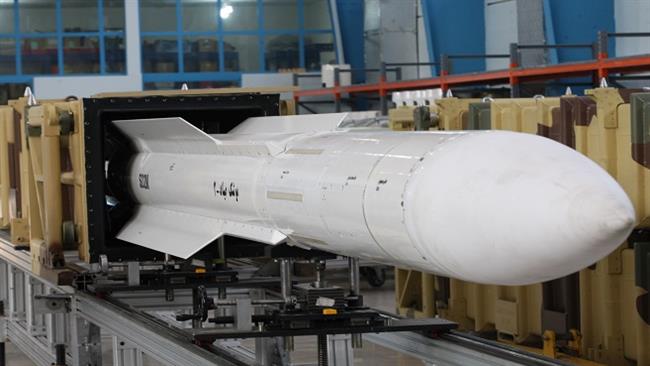A high-ranking Iranian military commander says the Islamic Republic plans to deploy a domestically-designed and -manufactured missile system in the central part of the country to improve its air defense power.
Brigadier General Farzad Esmaili, the commander of the Khatam al-Anbia Air Defense Base, said on Monday that the fully-indigenous Talaash (Endeavor) air defense missile system will be positioned in Dasht-e Kavir desert area in the near future, and will, together with home-made and mid-range Mersad (Ambush) missile defense system fully defend the skies over the area.
The Talaash missile system can intercept and strike targets like surveillance planes and unmanned aerial vehicles flying either in low, medium, or high altitudes.
The defense system comes in three variants, dubbed Talaash 1, Talaash 2, and Talaash 3. While Talaash-1 is employed for the low and medium altitudes, Talash-2 is used for medium to high altitudes, and Talaash 3 for high and very high altitudes.
The Talaash 1 and 2 systems used homegrown high-altitude and solid-fuel Sayyad 2 (Hunter II) missiles. Talaash 2 was later upgraded and synced up with Russian-built and medium-to-high altitude S-200 missiles. The upgraded system was then dubbed Talaash 3.
Last year, however, Iranian defense technicians and experts removed S-200 missiles from the feeder assembly of Talaash 3, and replaced them with the domestically-developed Sayyad 3 (Hunter III) missile, which has features similar to those of S-200.
Each unit of the indigenous Talaash missile defense system includes three vehicles, a truck carrying Patriot-style missile launchers and two command and control vehicles.
The Islamic Republic has recently succeeded in indigenizing its defense sector.
The country maintains that its military might poses no threat to other countries, stating that its defense doctrine is merely based on deterrence.
PRESS T.V
R.S

